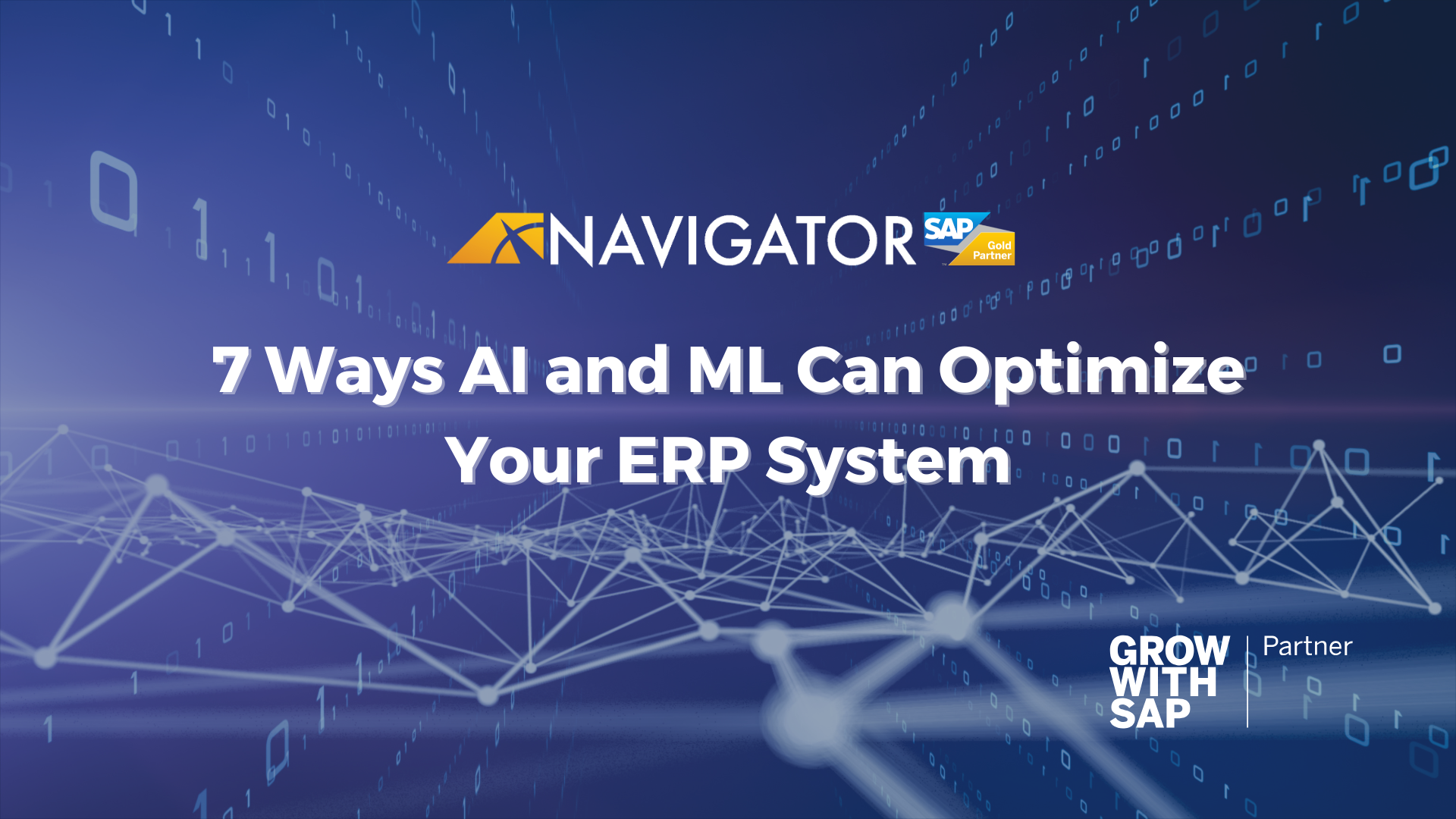
7 Ways AI and ML Can Optimize Your ERP System
There are many use cases for artificial intelligence and machine learning, some known and others still to be discovered.
One area where companies can leverage AI and ML today is by using it to make backend processes more efficient; the AI and machine learning in ERP can directly impact the optimization of backend systems, especially given that ERP stores the data and logs the activity performed by a business on a daily basis.
Organizations that use a modern ERP solution such as GROW with SAP (formerly known as S/4HANA Cloud Public Edition) have the further advantage of leveraging the built-in AI and machine learning in ERP or connecting it to one of the many large language models available today, such as Llama or ChatGPT. Businesses can easily connect most AI LLM engines to their ERP through the SAP Business Technology Platform.
With that in mind, here are seven ways that the AI and machine learning in ERP can help you optimize your operations.
1. Automating Routine Tasks
Much of what employees do within ERP can be automated. With the help of AI and machine learning, these automation opportunities can be uncovered and automatically set up for more efficient handling of routine tasks.
For instance, the AI and machine learning in ERP can automate invoice and payment processing, inputting data into the system from paper orders, verifying details, matching with purchase orders, and automatically adjusting inventory levels and reorders based on sales activity.
2. Creating Better Dashboards
With the use of AI and machine learning in ERP, the system itself can help tailor reports and dashboards to the needs of individual employees.
By analyzing the way that employees interact with the ERP system, AI and machine learning can dynamically generate dashboards and reports that collect the information a user needs for a given job function. No longer must employees go hunting for the right data; the ERP system will know what the employee needs and make it easily accessible.
3. Improving Supply Chain Operations
With supply chains more dynamic than ever, the AI and machine learning in ERP can learn and adjust supply chain dynamics so they are more efficient.
For instance, AI and machine learning can optimize delivery routes and take into account factors like weather, traffic, and real-time conditions that will reduce shipping costs and delivery times. AI also can assess supplier performance based on historical data for helping procurement teams choose the right supplier for quality, cost and reliability.
4. Making Workflows More Efficient
The AI and machine learning in ERP can work alongside robotic process automation (RPA) to help streamline the workflows between departments.
RPA bots can suggest workflows, while AI can analyze the performance of these workflows and identify bottlenecks and inefficiencies that can improve their operational performance.
5. Personalizing Customer Service
AI-driven chatbots integrated into your organization’s ERP system can assist customer service representatives with proactive, personalized support and upsell opportunities.
The AI and machine learning in ERP can analyze a customer’s history and both flag transactional information that a representative might miss and highlight potential remediation opportunities and products or services that might be of value to the customer.
6. Optimizing Fraud Detection and Risk Management
AI and machine learning can monitor operations and customer transactions in real-time, spotting unusual activity such as irregular spending patterns or unusual financial transactions.
The AI within ERP also can analyze historical data within a company to assist with better risk assessment. AI and machine learning can assign risk scores to business activity such as financial transactions, operational behavior or supply chain dynamics for more accurate risk-based decision-making.
7. Increasing Human Resource Effectiveness
With the AI and machine learning in ERP, an organization’s HR department can automatically evaluate employee activity and help generate performance reviews. By analyzing employee activity, AI also can spot skill gaps for specific employees and suggest training opportunities.
Recruitment activity can be made more effective with AI and machine learning as well. For instance, AI can assist hiring managers with initial screening and hiring suggestions. AI also can predict which employees might be at risk for leaving, which can help the HR department boost retention.
Mixing ERP Data with AI Insights
AI needs data. A company’s ERP solution has that data. So businesses with a modern ERP solution in place are in a strong position to take advantage of the latest advances in artificial intelligence and machine learning.
ERP has long supported deep levels of automation. With the addition of AI, the opportunities for automation and optimization are even stronger.
For more on how the AI and machine learning in ERP can improve your company’s operations, contact one of our experienced ERP consultants by calling us at (801) 642-0123 or by writing info@nbs-us.com.

